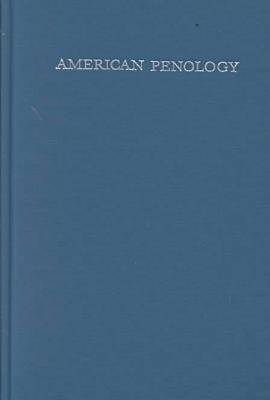New lines in criminology
1 total work
The significant events in the history of crime and punishment in the US have been recounted before. What this text offers is a unique way of communicating that story, which lends a new understanding to received notions of crime control and illuminates the moments in penal reform. Blomberg and Lucken provide a broad overview of that continuing legacy while examining the historical contexts and associated ideologies that gave rise to specific punishment policies and practices at each juncture. Together, these analyses provide insights into the likely future of penal control and the larger culture of control as we enter the new millennium. That expanding culture of control is the subtext of American Penology. The mechanisms of control have been applied to an ever-increasing proportion of the base population. And the culture of control portrayed in these pages is hardly limited to penal control. It pervades the general culture, and increasingly impacts upon the daily lives of American citizens.
Thus the policy context of Blomberg and Lucken's book goes well beyond the ambit of criminology, and touches on the declining levels of democracy, freedom, and privacy within the larger culture they explore.
Thus the policy context of Blomberg and Lucken's book goes well beyond the ambit of criminology, and touches on the declining levels of democracy, freedom, and privacy within the larger culture they explore.
